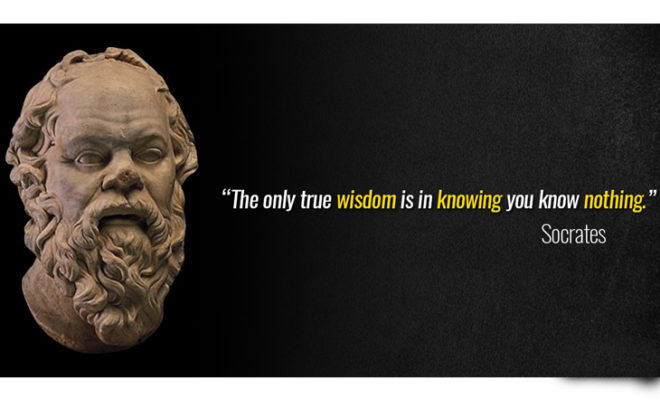Have we learnt to give back to the Environment and Community?

As most of the countries are opening up slowly, at least on a regional basis, and while we hope to say very soon that we are in the post-pandemic era with a once again flourishing atmosphere and booming productivity, we should look back at the months in which our businesses struggled in, challenges we all faced, difficulties we had to cope up with, and consequently come up with this essential question, is it time that we should give back?
We were nourished to the maximum possible capacity prior to 2020, and enjoyed different aspects of life to the extent that perhaps we forgot about our surroundings. Some large organisations may have had sections in their websites to talk about their Corporate Social Responsibility or ‘CSR’, but what about other organisations, from small to medium to large, governmental, NGOs, private entities … etc.? Have we thought of executing a genuine social responsibility plan, not only for promotional purposes or marketing goals? Have we given back to the community we operate in? Have we protected the environment that serves our food chain and fresh air? Well, undoubtedly, we will all share the same answer; it is the right time now, and it is the most needed period to do so. Please allow me in this article to highlight several strategies and tactics that we can do to bring back numerous benefits to us directly and indirectly.
For this, I would like to introduce a GET-COP approach in CSR which I combined, to offer your businesses some ideas that you can practice in order for our world to blossom again, and businesses to continue further. Get-Cop stands for, going green, ethical sourcing, team’s support, customers, our community and partnerships.
In a nutshell, this is the practice where you should save electricity and water by several means. You can install sensors in faucets and lighting so they can ‘turn on’ only when needed. You can recycle your waste, starting from used cooking oil towards papers, cutlery, electronics and used garments. Use filtered water and fill glass bottles internally in order to reduce the usage of plastics/cans and lessen the length of your supply chain, and by doing so your carbon footprint will be reduced. In other words, whatever you can get internally or source from your local community, this would reduce the necessity of middlemen such as delivery trucks, planes, ships, wholesalers, storage and lower the burden on the environment. You should try as much as possible to avoid using papers whether in invoices, LPOs, receipts or so on, as all electronic options are available today and going online has never been easier and cheaper than today. Try to plant on the roof or in the front or backyard gardens of your organisation. Switch to power efficient and recyclable electrical devices and machines. Start measuring your carbon footprints as businesses and display them on the package of your product/service, since today’s generation of millennial are very aware of environmental movements and certainly they read between the lines and look for greener options.
Ethical Sourcing
Ask yourself, where do your products or services come from? Are your suppliers unpaid, or underpaid, perhaps in a third-world-country? Are they employing underage children and depriving them from schools? Are your clothes made of leather materials taken from nearly-extinct species? Do the employees back in your supplier’s factories enjoy safe working conditions and fair treatment? Does the factory that you import from damage the environment by polluting lands or waters? Or to make matters worse, are those accessories or jewelleries you sell, imported from war-torn towns and fighting tribes? Are your online services, websites, servers or call centre staff operating in severe conditions? Are you checking the carbon footprint of the supply chain you’re using? Yes my dear, it is your responsibility as a business owner, entrepreneur, shareholder and a human being to ensure your sources are all practicing business ethics, and abiding by standards, business ethics and international laws.
Team’s Involvement and support
This strategy should be applied within your entity, through your staff in all different categories. Those are the ones who drive your revenue, and support your activities. Are they well paid on a timely manner so that they appreciate the time they’re with you and support their families? Do they have commissions or any sort of revenue sharing models by the company? Are they satisfied with the working conditions and rights? Do they have a say in the day-to-day duties as well as organisational strategies? Do you give back the credit to their accomplishments and achievements? Are they and their families taken care of when needed? Remember that they are the face of your business and without their skills it cannot be successful. These employees have financial, social, emotional and esteem needs that have to be satisfied. I read once an interesting logic that if the 1% owners of the 99%’s world’s wealth did not contribute towards employment, their welfare and economy, there will be no purchasing power left and hence their wealth won’t grow i.e. no one can buy from them or their peers. So, as an entrepreneur, put a tick on supporting your team and you’re a way ahead towards a socially responsible corporate.
Customers
Customers, although they are situated in the heart of every business model, they are sometimes forgotten in the core decision making process in product development or delivery. A lot of customers have special needs or disabilities which prevent them from carryingh out their daily activities. So my questions in this regard are: have you thought of placing a ramp near your showroom or service center?, or have you provided a dedicated parking space for people in need, or do you cater to various tastes and dietary requirements? Have you really thought of providing proper guidance and true information on each leaflet and label you serve? Are you planning to consider having any or many types of surveys to involve them in your processes and procedures and take their feedback? Are you considering recycling their used/returned gadgets in return for a voucher? Do you participate in charitable causes that your customers support, or do you organise campaigns that involve them? Do you offer your services fairly and equally to all with no discrimination? Most importantly, have you given back to them in a way similar to ‘cooperative society supermarkets’ in which they refund at the end of each year a part of the profits to their loyal customers?
Our Community
You are occupying a space on a proximity which belongs to or considers a part of a community, and there are some normal requirements for you to address. From your current place, are you supporting the local community, say, by lending them your auditorium for their occasions for free? Are you providing some sort of scholarships and priority in employment? Are you donating to local schools, institutes, childcare facilities, elderly care centres, and treatment centres? Share your successes with the surrounding community, install vending machines or filtered water dispensers, offer services or send greetings in festive occasions.
I remember one of my student’s stories during a course on sustainability; when he linked it to a real incident that happened during the time he used to manage a 5-star restaurant in a local neighbourhood. He explained that during every occasion, they had a habit of distributing meals to all the houses surrounding the restaurant regardless of them being disadvantaged or not, a way to give back to them for the space the restaurant occupies and the unnoticed/unfortunate troubles they may have caused unconsciously such as inappropriate car parking, noise, and other issues. In fact, he noticed that the neighbours started to help them and secure the facility when needed, and even call him during suspicious activities around the restaurant. By giving back to the community, you’re doing your part and certainly the results would be astonishing.
Partnerships
I always ask myself, instead of having many competitors offering the same product, why don’t they agree to offer unique different products and have a niche? To make the idea clearer, imagine the 4 shops on the same street agree to support each other to minimise hazards, and offer wider variety, or many factories participating to achieve a mutual goal. Think of the brands that partner with social and communal organisation giving to their causes in a continuous and consistent manner. Good tactics start from signing up to local and international agreements for reasons such as fair trade, climate change mitigation, labour rights … etc. as well as partnering with orphanages, charity groups, disability organisations, cure research centres, wasted food programmes and so on.
Now that you know the Get-Gop method of social responsibility, try to Google extra tactics and tips on giving back to the world in order for it to become a better and safer place. Our planet has a need in which we cannot overlook. Our reciprocated care about surroundings will result in a mutual gain if we truly reached out to mother earth, to human beings overall, and to life in general. By doing so, we can proudly say that we did our share, and no pandemic shall hinder our progress and growth.
Hussain Sharakhi
Co-writer
A renowned trainer and regional speaker for more than
14 years. He specialises in Soft & Social Skills, Sales &
Marketing, Blended Learning, Human Resources and Linguistics














